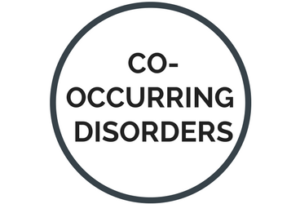Co-occurring disorders, often referred to as dual diagnoses, involve the simultaneous presence of both a mental health disorder and a substance use disorder. These complex conditions present unique challenges and can complicate diagnosis and treatment. In this blog, we will explore COD psychology, shedding light on how these mental processes influence the development and maintenance of dual diagnoses. We will also discuss effective therapeutic approaches that leverage cognitive principles to address these intertwined issues.
Contents
What Is COD Psychology?
 Co-occurring disorder (COD) Psychology refers to the study and treatment of individuals who simultaneously experience both a mental health disorder and a substance use disorder. These conditions are also commonly known as dual diagnoses. The presence of both disorders complicates diagnosis and treatment because each can influence the other.
Co-occurring disorder (COD) Psychology refers to the study and treatment of individuals who simultaneously experience both a mental health disorder and a substance use disorder. These conditions are also commonly known as dual diagnoses. The presence of both disorders complicates diagnosis and treatment because each can influence the other.
COD Psychology focuses on understanding the intricate relationship between these co-existing conditions. Hence, exploring how mental processes such as cognition, perception, and emotion contribute to the development and treatment of these disorders. By applying cognitive and behavioral therapeutic techniques, COD Psychology aims to address these intertwined issues, offering a more holistic and effective approach to treatment.
How To Identify The COD?
Identifying Co-Occurring Disorders (COD) can be challenging due to the complex interplay between mental health disorders and substance use disorders. However, certain signs and symptoms can help clinicians and individuals recognize the presence of a dual diagnosis.
Here are key steps and indicators to identify COD:
- Clinical Interview
A thorough clinical interview is essential to gather detailed information about the individual’s mental health history, substance use patterns, and current symptoms.
- Standardized Screening Tools
Using validated screening tools, such as the Addiction Severity Index (ASI) or the Psychiatric Diagnostic Screening Questionnaire (PDSQ), can help identify symptoms of both mental health disorders and substance use disorders.
- Mood and Behavior Changes
Individuals with COD often exhibit significant mood swings, anxiety, depression, or irritability, alongside changes in behavior such as increased secrecy, social withdrawal, or erratic actions.
- Relapse Cycles
Recurrent episodes of relapse in either mental health or substance use treatment might suggest an underlying co-occurring disorder. And particularly if the relapse in one condition triggers or exacerbates the other.
- Simultaneous Symptoms
Look for the simultaneous presence of symptoms such as depression, anxiety, or psychosis, along with substance dependence or abuse. The co-occurrence of these symptoms often signals a dual diagnosis.
- Functional Impairment
Both mental health and substance use disorders can interfere with daily functioning. If an individual struggles with maintaining relationships, employment, or daily activities due to both mental health and substance-related issues, a co-occurring disorder may be present.
- Genetic and Environmental Factors
A family history of mental health disorders or substance use can increase the likelihood of COD. Additionally, environmental factors, such as trauma or chronic stress, should be considered during the assessment.
Early identification of co-occurring disorders is crucial for effective treatment. A dual diagnosis approach, addressing both the mental health disorder and the substance use disorder simultaneously, is often necessary for successful recovery.
How Does COD Psychology Work?
 COD Psychology works by addressing the complex interplay between mental health disorders and substance use disorders through a comprehensive, integrated approach. It employs a holistic treatment model that focuses on both disorders simultaneously, using a combination of strategies.
COD Psychology works by addressing the complex interplay between mental health disorders and substance use disorders through a comprehensive, integrated approach. It employs a holistic treatment model that focuses on both disorders simultaneously, using a combination of strategies.
Simultaneous Treatment
COD Psychology emphasizes treating both the mental health disorder and the substance use disorder at the same time, rather than in isolation. This integrated approach ensures that neither disorder is neglected. This is crucial for preventing relapse and promoting overall recovery.
Cognitive Restructuring
A core component of COD Psychology is Cognitive-Behavioral Therapy (CBT), which helps individuals identify and modify distorted thinking patterns that contribute to both their mental health disorder and substance use. For example, someone with anxiety might learn to challenge catastrophic thoughts that lead to substance use as a coping mechanism.
Behavioral Interventions
CBT also includes behavioral strategies, such as developing healthier coping mechanisms, enhancing problem-solving skills, and creating structured routines. This reduce the likelihood of substance use and improve mental health.
Understanding the Interplay
Educating individuals about the connection between their mental health disorder and substance use is a crucial aspect of COD Psychology. Understanding how these disorders interact can empower individuals to take an active role in their treatment and recognize early warning signs of relapse.
Medication Management
In many cases, medication may be prescribed to manage symptoms of the mental health disorder or to support recovery from substance use. For example, antidepressants may be used to treat depression, while medications like naltrexone can help reduce cravings for alcohol or opioids.
Monitoring and Adjustment
Medication management is closely monitored and adjusted as needed. This is to ensure that the treatment is effective and minimize the risk of interactions between medications used for mental health disorders and those for substance use.
Therapeutic Alliance
Building a strong therapeutic relationship is fundamental in COD Psychology. Supportive therapy provides a safe space for individuals to explore their experiences, express their emotions, and develop trust in the treatment process.
Family and Group Therapy
Involving family members and participating in group therapy can also be beneficial. These sessions provide additional support, reduce isolation, and help individuals learn from others facing similar challenges.
Overall, COD Psychology works by providing a comprehensive, integrated approach that addresses the full spectrum of issues related to co-occurring disorders. By focusing on both mental health and substance use disorders simultaneously, it aims to achieve long-term recovery and improve the individual’s quality of life.
What Are The Pros And Cons To Consider?
When considering the treatment of Co-Occurring Disorders (COD) through the lens of COD Psychology, it’s important to weigh the pros and cons of this approach. Understanding these can help individuals and healthcare providers make informed decisions.
Pros
- Improved Outcomes: Research shows that integrated treatment can lead to better long-term outcomes, reducing the likelihood of relapse and improving overall mental health and substance use recovery.
- Flexibility in Treatment: The approach can be adjusted over time as the individual’s needs evolve, providing ongoing support that adapts to changes in their condition.
- Effective for Multiple Issues: Cognitive-behavioral therapy (CBT) used in COD Psychology is effective for treating a wide range of mental health disorders. It also helps individuals develop healthier coping mechanisms to manage substance use.
- Increased Awareness: Psychoeducation helps individuals understand the connection between their disorders. This can motivate them to engage more fully in their treatment.
- Strong Therapeutic Relationships: The supportive nature of COD Psychology fosters trust between the individual and their therapist. This is essential for successful treatment.
Cons
- Challenging Diagnosis: Diagnosing and treating co-occurring disorders can be complex, as symptoms of one disorder may mask or mimic those of the other, making accurate diagnosis difficult.
- Time-Consuming: Integrated treatment approaches often require more time and commitment from both the individual and the healthcare providers, which can be challenging to maintain over the long term.
- Cost and Accessibility: Comprehensive, integrated treatment can be expensive, and not all individuals may have access to the necessary resources. This may include specialized therapists or treatment centers that focus on COD.
- Side Effects: Individuals may experience side effects from medications used to treat either the mental health disorder or substance use disorder, which can complicate treatment.
- Dual Management: Managing two disorders simultaneously can be overwhelming for some individuals, potentially leading to setbacks if not adequately supported.
- Social Stigma: Individuals with co-occurring disorders may face increased stigma, both from society and within healthcare settings. This can hinder their willingness to seek and continue treatment.
Overall, while COD Psychology offers a robust and effective approach to treating co-occurring disorders, it is important to consider these pros and cons. Balancing these factors can help ensure that individuals receive the best possible care tailored to their unique needs.
Conclusion
In conclusion, understanding COD Psychology offers a comprehensive and integrated approach that addresses both mental health and substance use disorders simultaneously. This method focuses on personalized treatment plans, cognitive-behavioral therapy, and supportive care to help individuals achieve long-term recovery. While there are challenges, the benefits make COD Psychology a valuable approach.
For more information, please contact MantraCare. Online therapy types include videoconferencing, phone sessions, messaging-based therapy, chat-based therapy, and therapy based on different problems. If you have any queries regarding Online Counseling experienced therapists at MantraCare can help: Book a trial therapy session


